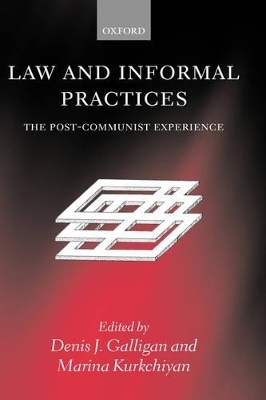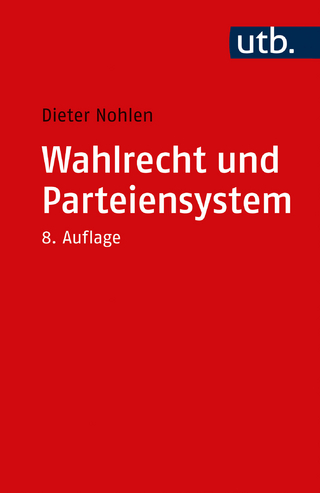
Law and Informal Practices
Oxford University Press (Verlag)
978-0-19-925936-6 (ISBN)
Law and Informal Practices is a work in socio-legal studies, examining the functions and effectiveness of law in the countries of the former Soviet Union. As the transition away from communism enters its second decade, the countries involved are confronted by an apparent failure of law. Understanding the newly formed social order in which law is powerless is a challenge to the assumptions of western jurisprudence.
The contributors to this book take up that challenge. Using the framework of contemporary theory, ten specialists in different aspects of social science analyse the status of post-communist law from a variety of perspectives. Their emphasis is on the interplay between law and social norms, informal practices, and human values. Their work contributes to several of the wider ongoing debates in socio-legal studies: on the rule of law and its role in maintaining social order; on the interaction between law and social norms, relation between legitimacy and legality; and on the relative merits of solving problems by informal means such as networking or the use of intermediaries rather than by formal, institutionalised processes.
At the same time, the book is intended to meet the needs of those interested not just in law but in the post-communist region. Blending theory with case studies, each contributor focuses on a single sector, such as the political system, worker-management relations, human rights, the machinery by which law is made and implemented, or the cultural and historical background of the societies under consideration. The majority of the chapters draw directly upon the authors' own experience and empirical research.
Denis J. Galligan is Professor of Socio-Legal Studies and Director of the Centre for Socio- Legal Studies, University of Oxford. He was previously Professor of Law at the University of Southampton and the Univerity of Sydney. Marina Kurkchiyan is Socio-Legal Research Fellow, Wolfson College, University of Oxford. She was previously North Fellow at the Centre for Socio-Legal Studies and Fellow of Keble College, Oxford, Visiting Fellow, New Hall, Cambridge, Fulbright Scholar, Centre for Russian and East European Studies, University of Michigan at Ann Arbor, Charter Fellow in the Humanities and Social Sciences, Wolfson College, Oxford, and Lecturer, then Senior Lecturer, in Sociology, Yerevan State University.
1. Legal Failure: Law and Social Norms in Post-Communist Europe ; 2. The Illegitimacy of Law in Post-Soviet Societies ; 3. Jus and Lex in Russian Law: a Discussion Agenda ; 4. Culture, Politics, and the Rule of Law in the Commonwealth of Independent States ; 5. Russian Attitudes Toward The Rule of Law: An Analysis of Survey Data ; 6. The Regulation of the Employment Relationship in Russia: the Soviet Legacy ; 7. Legislating on Religion in the Face of Uncertainty ; 8. Hope and Bitterness in the Reform of Russian Bankruptcy Law ; 9. Transplantation and Transition: Legality and Legitimacy in the Kazakhstani Legislative Process ; 10. East Asian Regulatory Informalism: Implications for Post-Communist Countries
| Erscheint lt. Verlag | 1.3.2003 |
|---|---|
| Verlagsort | Oxford |
| Sprache | englisch |
| Maße | 161 x 242 mm |
| Gewicht | 473 g |
| Themenwelt | Recht / Steuern ► Allgemeines / Lexika |
| Recht / Steuern ► EU / Internationales Recht | |
| Sozialwissenschaften ► Politik / Verwaltung ► Politische Systeme | |
| Sozialwissenschaften ► Politik / Verwaltung ► Politische Theorie | |
| Wirtschaft | |
| ISBN-10 | 0-19-925936-4 / 0199259364 |
| ISBN-13 | 978-0-19-925936-6 / 9780199259366 |
| Zustand | Neuware |
| Haben Sie eine Frage zum Produkt? |
aus dem Bereich


